A couple of years ago we worked with a German company who had some issues in their production flow. The atmosphere in the production units was, to put it mildly, somewhat aggressive. There were many experienced workers who early on had adapted a mindset to do exactly as they were told, but nothing else. Cooperating and developing was nothing that either the mangers nor the co-workers were familiar with or maybe even interested in.
The production capacity in the factory in question fluctuated a bit, sometimes there was too much to do and sometimes there was not enough to do. However, it was obvious that the big bottleneck of the factory was the paint booth. Outside the paint shop unpainted products were stacking up, leading to that production often almost came to a halt. Naturally, this resulted in friction between the work teams, and often a fight was in the offing. All the effort to get the men working in the paint shop to change their way of working lead to nothing, it even went so far that the head of the paint shop handed in his resignation.
The production manager, we can call him Finn, had been to a COD training earlier that month, was now assigned as the interim manager. He called us and wondered if he could use what we had learned in the training, as they had tried everything else for years without any success. We discussed things over the phone and our suggestion was that he should go to the team, gather them around him, and ask the question in a COD meeting: “How can you paint more products per day?”
Finn seemed rather suspicious and hesitating to whether the team really would be participating and answer the question, but after all he decided to hold such a meeting with our support in formulating the background, he should present regarding his question. After the meeting Finn called us back for a follow-up on how it went, he then told us it has not been a very pleasant meeting. The background and question had gone well, but when it was time for him to collect suggestions to how to solve the issue, only opinions about what everyone else should do in a better way emerged. Nothing, according to the team, could be done differently by themselves. Our suggestion to Finn on how to handle this was to run the meeting once again, which he after a short discussion reluctantly adopted.
The following week, Finn called again. Full of hope, we asked him how the meeting went, but we could already tell by the sound of his voice that this had not been a great success either. Things had progressed exactly the same way as before, and the meeting had turned into how bad the others were. He was even angrier than the previous time, and maybe even slightly humiliated. He told us that he had decided to go with another approach – to be strict and giving them orders on how to perform. We asked him if they had tried that before and if it had helped. When he had calmed down a little he replied that they had tried it many times and so far it had never had an effect. By the end of a long telephone conversation, Finn asked: “OK, what do you suggest that I should do?” Unfortunately, he was not overjoyed by our suggestion, which was the same as before.
At the end of the call Finn said, that against his own judgement, he would run a third meeting and promised to call and tell us how it went. A couple of days later he called and his voice sounded a lot happier. He said that first the team had asked him what he was doing there again. Then things had started as it had in the previous meeting, with statements from some of the co-workers about how bad the other departments were. However, the rest had replied: “I could start a little later in the day as then I can go directly to football practice at 7 p.m…” The next person said that he would like to start earlier so that he could pick up his children from school at 3 p.m. After the first answer to the question the suggestions came one after another. E.g. how the preparations could be developed, in what order to paint the finer details on the products, how to help each other in order to avoid having to change the diffuser as often, and much more.
The meetings continued with the same methodology and with other questions, but they remained constructive and disciplined, and two months later Finn called again and chuckled: “The whole paint booth is standing outside the factory paint box singing defiantly ‘wo sind die Busse?’ (‘where are all the buses?’) because there is no waiting time any longer to have them painted.”
